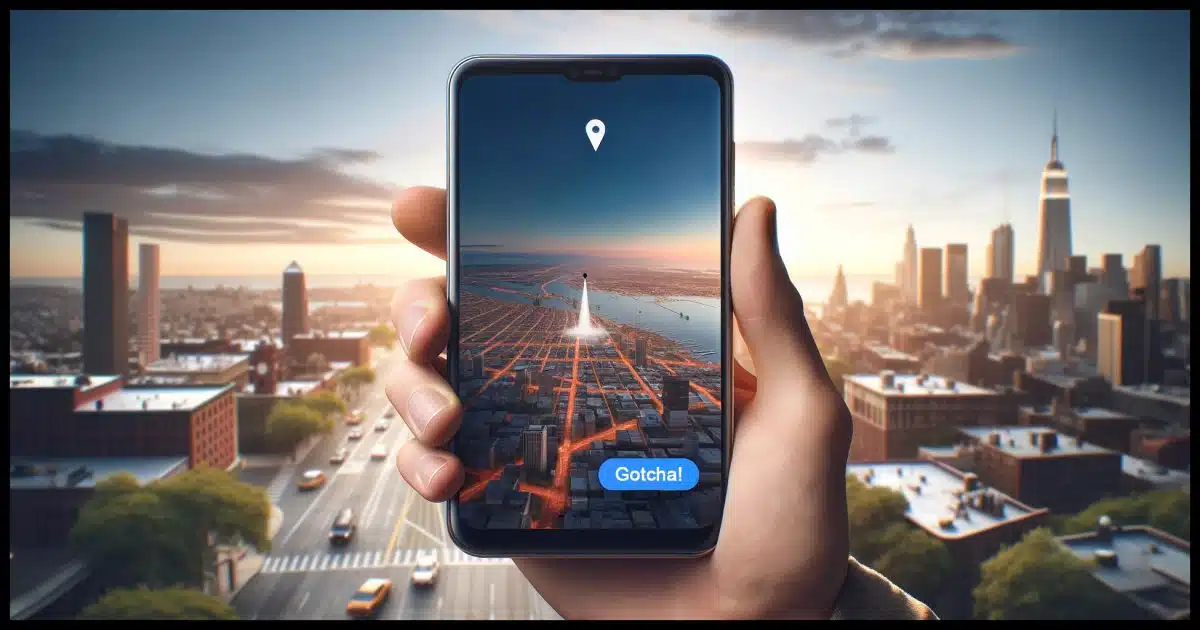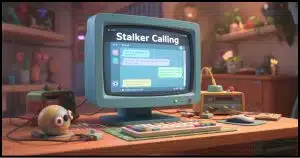It’s probably not what you think.

I ran across a TikTok channel a while back that got my attention. No, no dancing teenagers; this was a channel dedicated to showing how easy (or hard) it can be for someone with enough time and resources to locate someone else.
Not just anyone, though. They have to have done something very specific.
But it’s something people often do without thinking.

Leaking our location
A TikTok channel by Jose Monkey showcases his ability to pinpoint exact locations from videos people send him. Using landmarks, structures, maps, and other clues, he successfully locates about 80% of the places in the videos. This highlights information we unknowingly share in our photos and videos.
Jose Monkey
Jose Monkey invites people to send him short videos of their surroundings — perhaps a 180- or 360-degree panorama — and explicitly1 ask, “Find me, Jose Monkey.”
And he does. From random parks to parking lots to out in the middle of the desert, Jose Monkey uses a combination of these factors and, I’m sure, others.
- Landmarks and physical characteristics of the location
- Buildings and other structures that appear, however briefly, in the video
- The Open Street Map database
- Google Earth
- License plates of any vehicles in the video, if distinguishable
- Even the accent of the person asking the question
He’s incredibly successful. Supposedly, he locates something like 80% of the videos sent to him right down to exactly where the person was standing when they took it. He’s located people who’ve sent him videos throughout the United States and Canada as well as several other countries.
Here’s a particularly impressive result from someone who pulled off the highway in the middle of the desert.
@the_josemonkey Replying to @Pamela Carnell Definitely not a parking a lot #geolocation #OSINT ♬ original sound – josemonkey
Jose Monkey (Jose? Mr. Monkey?) then shows how he determined exactly where the person was standing.
I find it entertaining, but that’s not why I’m discussing it today.
It’s also very educational.
Help keep it going by becoming a Patron.
How we leak information
When we think about leaking personal information, we think of data breaches, large companies tracking us somehow, not realizing how our information might be used by the various services we sign up for, the GPS in our devices, and so on.
Jose Monkey is an example of something very different and very innocuous: the photos and videos you take and post. They don’t even have to be posted publicly, since anyone who sees them could, of course, repost them elsewhere publicly with or without your consent.
Put another way, every selfie, photo, and video we take has the potential to tell others exactly where we are. Not all do, of course, but more than you might think.
Maybe you’re not someone who takes a lot of photos or shares them when you do. By and large, you’re not leaking much, if anything.
Let’s talk about the kids, however. The selfie generation. They’re constantly taking and posting photos and videos — selfies or not — of themselves, their friends, and their activities, often publicly, and typically without regard to the information those photos contain.
Like their location.
It’s not trivial
Now, I don’t want to suggest we shouldn’t take photos. Our digital record is an important part of how we live and how we reflect on how we’ve lived. It’s how we share our lives with others.
As you can see from Jose Monkey’s efforts, tracking locations based on the videos he’s given takes time and dedication. It takes him from half an hour to a couple of days. That’s a commitment. As I often say, we’re not that interesting, and it’s unlikely someone is going to invest that kind of time into figuring out exactly where we are.
But unlikely isn’t never, and when it comes to children and young adults, there are greater concerns, particularly since it’s unlikely they’ve considered all the issues involved.
And, of course, if you are interesting to someone, perhaps they would be motivated enough to invest the time.
Most of us need not be concerned. Just be aware that this is possible, and perhaps more possible than you thought.
Do this
Share this information with people you consider vulnerable. Make sure they’re aware of their surroundings when taking photographs, and what those surroundings might tell someone else.
As I said, most of us need not worry, but some of us do, and it’s an important concept to understand.
Want more concepts to understand? Subscribe to Confident Computing! Less frustration and more confidence, solutions, answers, and tips in your inbox every week.
Podcast audio
Footnotes & References
1: There are rules in place so you can’t submit someone else’s video — there has to be an explicit request in the video.
Here is Jose Monkey’s homepage, which includes links to the TikTok channel as well as a YouTube channel that mirrors most of the same content.



That’s one of the few things police shows kind of get right. They analyze the surroundings, for example, plants native to the area, etc.
It also makes me wonder about the metadata in videos and photos. Is that not also an easy way to identify location?
Meta data can reveal a lot, often your exact location if you have GPS turned on. This article is about the ways a photo’s location can be identified from the photo itself. For example, a photo fond on the Internet stripped of its metadata.
No Rocket Science here!
That is how UK-based investigative collective Bellingcat concluded that flight MH17 was shot-down with a russian buk-rocket.
https://en.wikipedia.org/wiki/Malaysia_Airlines_Flight_17
Are there Android apps or Windows programs out there that will strip all the metadata from your photos or videos?
I use Irfanview to remove EXIF data from .jpg files.
I am probably naive, but I have never been concerned about whether someone knows my location. Our landline number is still listed in the phonebook. I’m easy to find. It’s OK with me.
Not naive. As Leo said, “As I said, most of us need not worry, but some of us do, and it’s an important concept to understand.”
This is important, for example, for people hiding from abusive spouses. When I was teaching, we weren’t allowed to post pictures of the students in case there might be some parents with a restraining order.
Jose Monkey is awesome in the way he’s able to identify locations based on minimal clues.
As you note, tools like Google Maps / Earth and Open Street Map are game changes and give mass access information previously available only to national agencies.